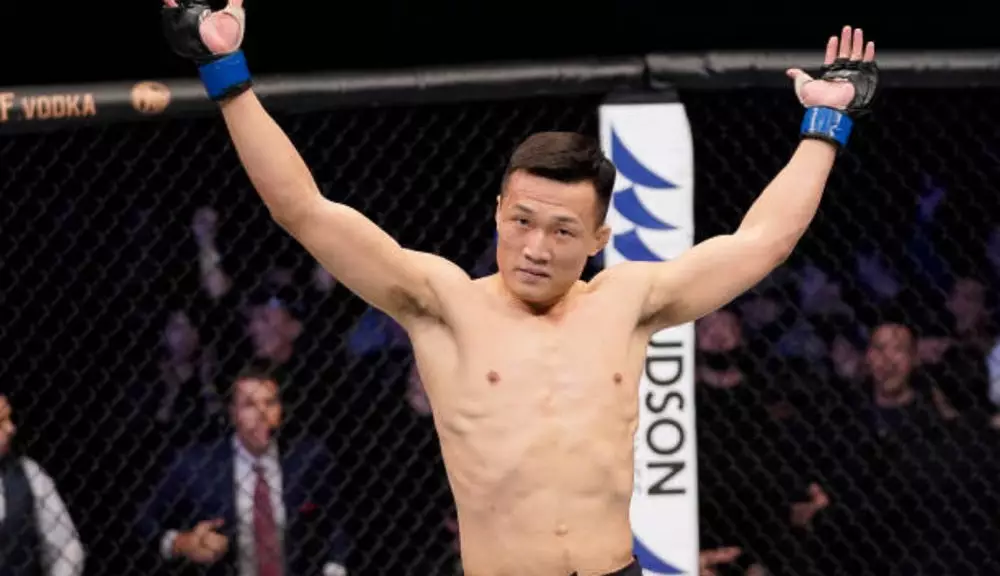The world of mixed martial arts (MMA) is often characterized by its brutal nature, where combatants risk their health and well-being for glory and recognition. For fighters like Chan Sung Jung, known widely as “The Korean Zombie,” the journey doesn’t end with the final bell. As he transitions into his post-fighting phase, Jung provides a unique insight into how one can evolve after a career deeply entrenched in physical combat.
After sustaining a knockout loss to Max Holloway in August 2023, Jung made the difficult decision to retire from professional fighting, ending his career with a respectable 17-8 record. While many fighters approach retirement with a sense of loss or struggle to find their next path, Jung embraced it. Retirement for him symbolized not an end but a new chapter filled with opportunities. “I take care of my three kids, own a YouTube channel and a gym, coach more than 20 fighters, operate a beer pub called City Beer, and also began running a promotion called Z Fight Night,” he shared, revealing a life brimming with responsibilities that provides him with fresh motivation outside the Octagon.
Most athletes entering retirement are expected to slow down, resting on their laurels after years of achievement. However, Jung’s story diverges from this narrative. His dedication to maintaining an active lifestyle is commendable and deconstructs the notion that retirement means sitting idle. In fact, he indicated that if he had not been loaded with new challenges, he might have continued fighting. This sentiment introduces an important discourse about the mental and emotional hurdles athletes face post-retirement, especially in an environment that glorifies their physical prowess.
Retirement also exposes fighters to the realization of their mortality in the sport. Jung admits to grappling with feelings of wanting to reclaim his competitive edge, reflecting a common struggle among athletes. “I’ve seen so many fighters come out of retirement, and while I didn’t really understand it before, now I totally get it,” he stated, reinforcing the emotional bond fighters create with their sport. Nevertheless, with UFC President Dana White openly discouraging a comeback, Jung seems to respect that curtain call, valuing the legacy he created in the UFC rather than risking it for fleeting glory.
While the allure of returning to the Octagon might tempt many former fighters, Jung has adeptly redirected his focus. His immense popularity in South Korea has translated into a successful venture with his new promotion, Z Fight Night. Scheduled events bring fresh excitement to the MMA community domestically, cultivating the next generation of fighters. Jung’s ambition isn’t simply to host fights; he aims to elevate the image of MMA in Korea and ensure that it finds a broader global recognition.
With UFC Fight Pass backing his promotion, Jung is setting the stage for significant events. His enthusiasm for the sport translates into actionable goals; he isn’t just hoping to create a promotion but aspires to build a robust platform for Asian fighters to showcase their talents. The upcoming fight card, which includes promising names such as Dorobshokh Nabotov and Matheus Camilo, signals his commitment to finding and nurturing new talent.
As Jung reflects on his new venture, it’s clear he possesses a long-term vision. He seeks not only to reinforce a local MMA scene but also to impact globally. “I truly believe we’re heading in a good direction,” Jung stated, showcasing a patient mindset that merges ambition with a dose of realism.
It is inspiring to note how Jung navigates the delicate space of transitioning from athlete to mentor and promoter. Instead of succumbing to the void that retirement can create, he is actively creating a legacy that extends beyond his fights. His multifaceted involvement—spanning coaching, promotion, and entrepreneurship—not only keeps him engaged but also contributes to the sport in meaningful ways.
The story of Chan Sung Jung exemplifies how fighters can redefine what retirement means in a sport often dominated by physicality. His proactive approach to creating a vibrant post-fighting life is a testament to adaptability and resilience. Moreover, as The Korean Zombie embarks on this exciting journey, he serves as an inspiration to both current athletes and those pondering retirement. Rather than symbolizing an end, retirement can ignite new passions, proving that the fighter’s journey is far from over. Jung’s narrative is one of hope, transformation, and an unwavering commitment to the sport he loves and the legacy he continues to build.

